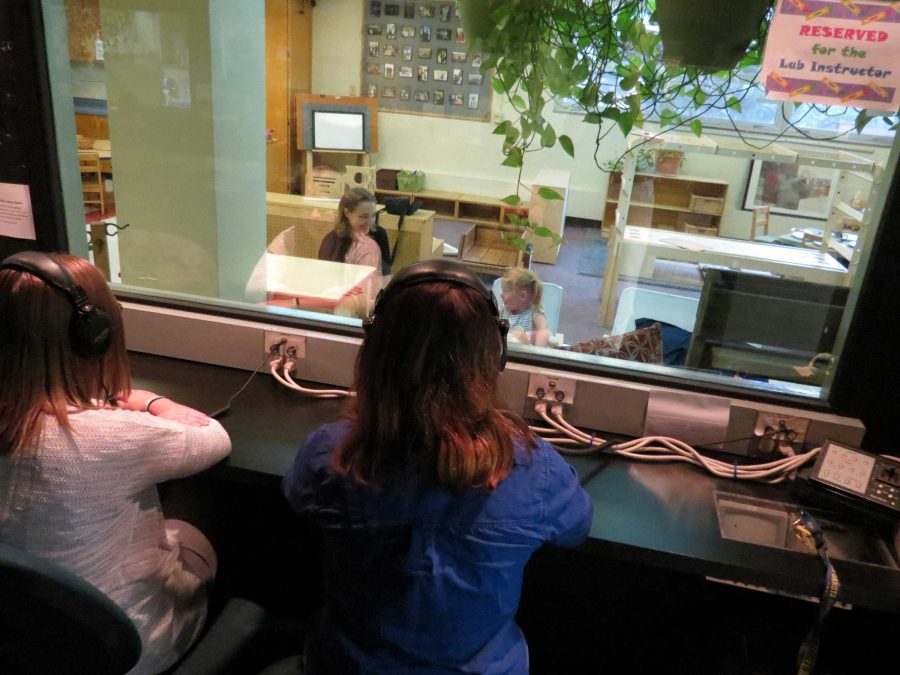Shuffling sand boxes, clanking toys and laughter are all noises that typically fill a play therapy office. This starkly contrasts with the silence one would expect to find in most other therapeutic offices. This is because play therapy is aimed specifically toward helping children.
Staci Born is an assistant professor in the counseling and human development program at South Dakota State. She specializes in mental health and is now teaching a class in play therapy. There are currently 10 students taking this class that will become registered play therapists after their graduation in August.
Play therapy is a process that caters to children’s specific mental and emotional needs. Play therapists utilize tools like art, puppets and role play to help the child cope and grow.
The therapy itself is geared toward children from ages 3 to 12 because “children that young don’t have the cognitive ability to be able to use words to express the difficulties that they are experiencing in their lives, so ‘play’ allows them to do that,” Born said.
She went on to say that play allows children to act out any problems they cannot verbally explain. Through this, they also learn how to cope with their situation and future issues.
She also explained more about the tools used by play therapists and why those tools are chosen.
“It is a variety of toys, and a lot of it can either be based on the type of clients that you typically see or the theory that you really are attracted to,” Born said. “A lot of therapists use sand trays, which I have here with a very small selection of miniatures, but you would allow a child to create a little world and you would give them access to hundreds of sand miniatures to make that world.”
These activities can help children develop their decision making skills and learn how to overcome problems.
She also said other therapists use techniques, such as creating scenarios together, as teachable moments for patience and how to follow directions. Some children’s books, games, puppets and doll houses are useful tools for play therapists.
The program at SDSU is comprised of four courses in which groups of 10 students progress through each course together.
Holly Kelly graduated in May and completed the
program in early August. She
is currently working toward
becoming a registered play therapist.
While working at the Washington Pavilion in Sioux Falls as an instructor for girls in science, technology, engineering and math, she said she saw the need to help kids and that play therapy really helps with that.
She now works at Southeastern Directions for Life and uses play therapy with children there.
Born and Kelly said play therapy is one of the best treatment options for children ages 3 to 12 because of age complexities. Research done by Play Therapy U.K. indicates a 71 percent success rate of patients referred to play therapy.
The program at SDSU started in the summer of 2017 and is accredited by the Association for Play Therapy.

























